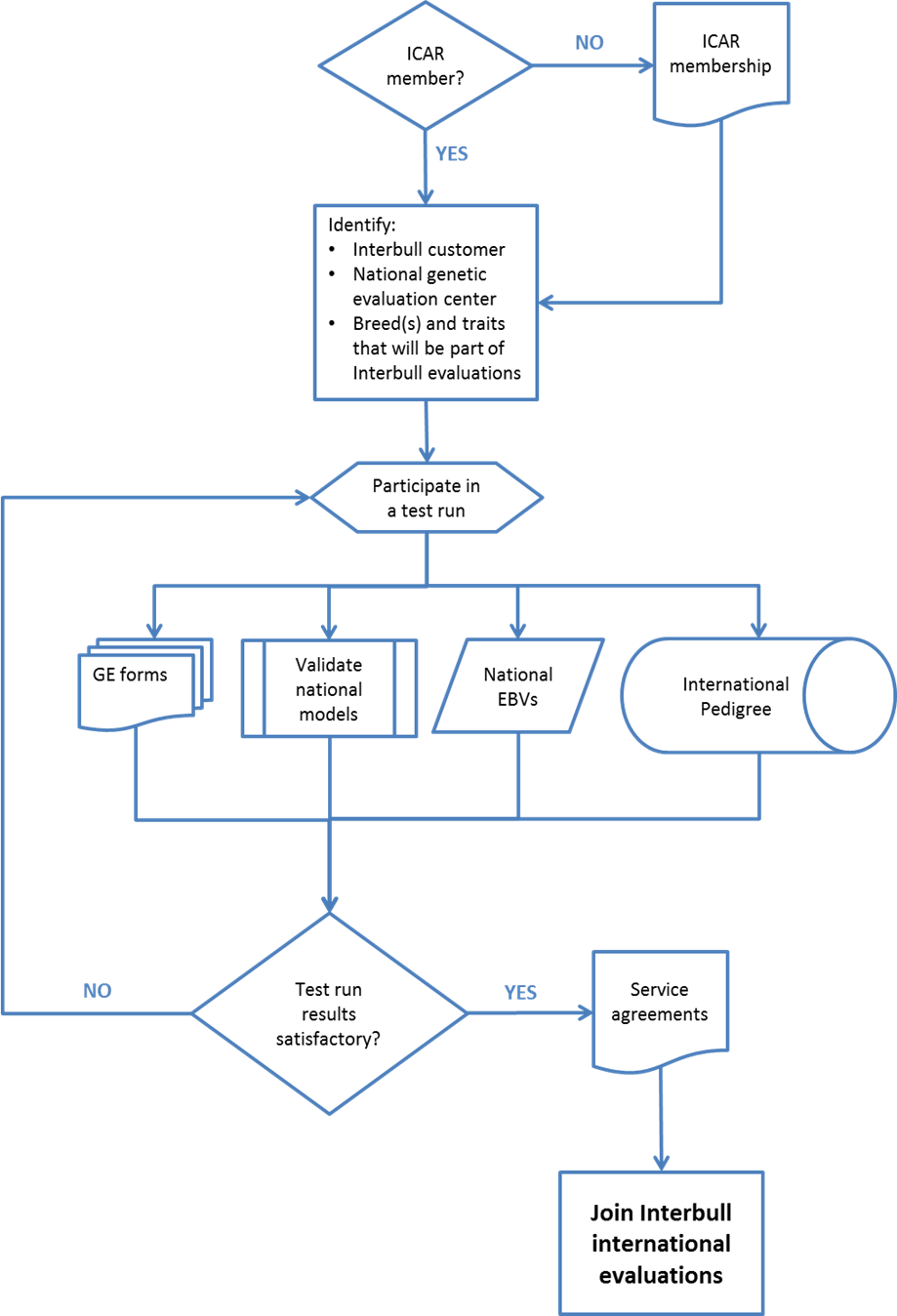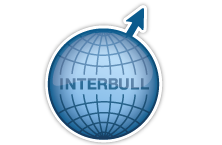Becoming part of Interbull
In order to include national genetic evaluations for dairy breeds in the Interbull international evaluations, the following steps should be followed:
Steps for an organization interested in joining Interbull services

- Identification of full ICAR member which supports the participation of the national dairy genetic data in Interbull international evaluations – the ICAR member doesn’t have to be the same organization that handles national genetic evaluations, but both have to be in agreement about the ingress on the Interbull services.
- Identification of the official representative of the national dairy industry before Interbull(Interbull Customer) – this has been referred to as “Interbull member” in the past, but in our current understanding the membership relates to ICAR, as the mother organization. In some countries, however, the ICAR member is not the same organization that takes the full responsibility for the national genetic evaluations and performance records, which will ultimately also be responsible for paying for the Interbull service fees**.
- Identification of the national genetic evaluation center(s) – this represents the actual organization that performs regularly the national evaluations and holds the expertise in dairy genetics and breeding. This is sometimes attached to a university or is run by an independent research center, depending on the country. Some countries also have separate evaluation centres for different traits or for different breeds. The national evaluation center will have a close interaction with the Interbull Centre regarding technical and data exchanges.
- Definition of breeds and traits that will take part in Interbull evaluations – not all countries are able to participate in Interbull evaluations with data for all possible trait-breed combinations. In general, newcomer national evaluation centres start sending production traits data from the most numerous populations (breeds) and then add new traits and breeds in the following Interbull test runs.
- Participation in Interbull test run(s) – test runs are used to introduce changes in both national and international evaluations before these changes are incorporated in the official MACE routine evaluations. The consequences of introducing data from new populations also need to be evaluated in a test run before the new data can be included in the routine evaluations and officially published. Four main actions need to be performed during the test run:
- Description of the national genetic evaluation program – in order to integrate data from a new country, Interbull needs to understand the models, variables definitions, population structure, genetic parameters, and other general aspects of the national program. This is achieved by means of the GE forms supplied by Interbull.
- Verification of national pedigrees using Interbull international data base – this step is critical to establish the links with the other populations in Interbull evaluations. A check is done in collaboration with Interbull to ensure there are enough genetic ties between the new country breeds and the current Interbull participating populations. A cross-reference file is available to check the original registration numbers of imported bulls.
- Suply of national breeding values - the MACE methodology utilizes national EBVs and relationships as input for the international comparisons.
- Validation of national genetic evaluations – Interbull requires that all data sent by the participating organizations meet minimum quality standards, which are evaluated according to well established validation procedures.
- Signature of service agreements – once both the Interbull Centre and the demanding organization are satisfied with the test run results, the appropriate legal instruments establishing the basis of the services to be provided and the mutual responsibilities need to be signed.
- Participation in Interbull routine runs – once the newcomer national evaluations have been successfully included and approved in a test run and the letter of agreement has been signed, they can become part of the regular routine runs of Interbull.
**Service fees are a function of the number of dairy cows in milk recording reported in the "Yearly Milk Production" report of ICAR and the number of trait groups evaluated.

